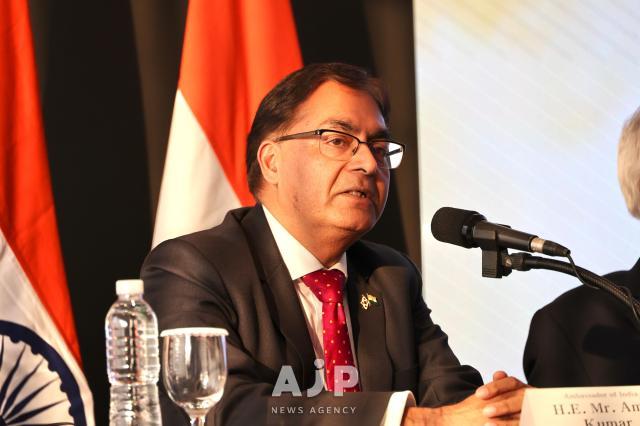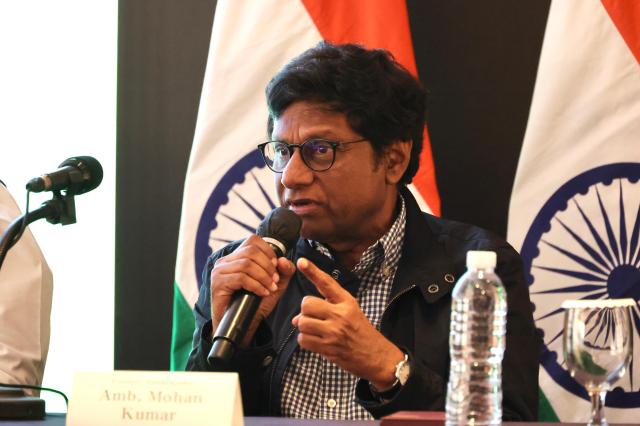
SEOUL, May 27 (AJP) - A group of Indian lawmakers and former diplomats held a press conference in Seoul on Monday to deliver a clear message -- terrorism, especially cross-border attacks, must not be tolerated. Speaking to Korean officials, researchers, and journalists, the delegation emphasized that India’s approach is now defined by what they called a policy of “zero tolerance.”
The delegation’s visit comes in the wake of the Apr. 22 terrorist attack in Pahalgam, Jammu and Kashmir, which killed 26 civilians, including one Nepali citizen. India has blamed militants trained in Pakistan for the attack and responded with what it described as a series of measured, precise strikes on terrorist facilities, an operation now referred to as Operation Sindoor.
At the press conference in Seoul, Indian Ambassador Amit Kumar said the delegation was there “to amplify the Indian government's messaging on its new policy of zero tolerance to combat terrorism in all its manifestations.”
Before the press event, the group consisting of both ruling and opposition party members met with South Korea’s Foreign Minister Cho Tae-yul, Vice Foreign Minister Kim Hong Kyun, and several key lawmakers at the National Assembly.

Brij Lal, a member of the Indian Parliament and part of the ruling party, said the Pahalgam attack was a calculated assault on religious lines. “India waited for two weeks, verified the facts, and then launched precision strikes against nine terrorist infrastructures in Pakistan. No civilians were harmed,” he said. He also pointed to South Korea’s strategic importance, both as a commercial partner and a UN Security Council member.
When asked whether India saw a path forward through dialogue, Aparajita Sarangi, another MP in the delegation, made her position clear. “No dialogue with Pakistan unless there is cogent, clear evidence that Pakistan has given up terrorism,” she said, adding those responsible must be brought to justice. “Every time we reached out, we were betrayed,” she added. “This is not about symmetry. India is not sponsoring terrorism. We are the land of Mahatma Gandhi.”

Mohan Kumar, India’s former ambassador to France, echoed that frustration. Citing past terror attacks, including the 2008 Mumbai bombings, he said India had repeatedly attempted talks, only to be met with violence. “Our humility is not our weakness. We waited 14 days for Pakistan to act. When they didn’t, we responded with precision and restraint,” he said. “We are a peace-loving nation, but we will defend our people.”
The delegation also met with lawmakers such as Yun Ho-jung, who chairs the Korea–India Parliamentary Friendship Group, and Sung Il-jong, chair of the National Defence Committee. Both expressed support for India’s position. Sung described terrorism as “a crime against humanity.”
In meetings with think tank representatives, the delegation explained what they called India’s “New Normal” in dealing with terrorism -- quick, targeted responses, and no separation between attackers and the governments that support them.
The visit to Seoul is part of a broader international tour that includes stops in Japan, Singapore, Indonesia, and Malaysia. Other Indian delegations have traveled to Europe and the Middle East. According to the group, the goal is not just to share India’s position, but to build wider consensus that terrorism cannot be treated as a regional issue. It is a global one.
Copyright ⓒ Aju Press All rights reserved.




